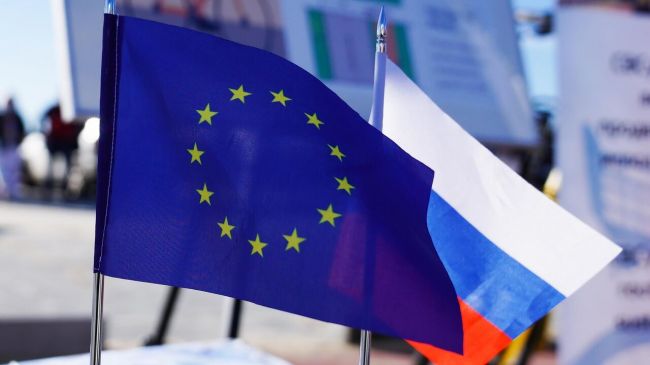
The EU bought almost €30 billion worth of oil and gas from Russia last year
In 2023, Russia supplied hydrocarbons to the European Union that were not subject to sanctions.The countries of the EU purchased Russian oil, petroleum products, and gas worth over €29 billion.
In 2023, the trade turnover between EU countries and Russia decreased by 2.9 times in value compared to 2022 which was an unusual one. During that year, world oil prices averaged $100 per barrel, and Russia earned more than €90 billion from the sale of oil and petroleum products to European countries, despite the timing being the beginning of a break in trade ties with the West. Compared to the pre-sanction year of 2021, the turnover of mutual trade between the EU and Russia decreased by 2.8 times. According to statistics from the European agency Eurostat, analyzed by the agency RBC, imports of Russian goods into 27 EU countries amounted to €50.64 billion at the end of 2023, while EU exports to Russia amounted to €38.32 billion.
The Russia Federal Customs Service (FCS) reported that exports of goods from Russia to Europe amounted to $84.9 billion in 2023, which is 3.1 times less than in 2022. However, Belarus is classified as part of Europe, which largely explains the discrepancy, according to Alexander Firanchuk, a senior researcher at the International Laboratory for Foreign Trade Research at RANEPA. In 2021, Russian exports to Belarus totalled $22.8 billion and are likely to be at a similar level currently (publication of FCS statistics for specific countries has been suspended). Firanchuk notes that historically, Russia and Europe have had different methods of counting maritime supplies. For instance, if Russia sends oil to the Netherlands and they subsequently ship it to a non-European country, the Netherlands does not consider it an import, but for Russia, it is an export to an EU country. The press service of the Federal Customs Service has confirmed that they use the all-Russian classifier of countries of the world, which categorises Belarus as part of the macro-region 'Europe'.
Alexander Daniltsev, director of the Institute of Trade Policy at the Higher School of Economics, explains that statistics may differ between countries due to various factors, making it challenging to obtain an accurate picture. These inconsistencies include variations in customs value estimates, differences in export and import registration timing, discrepancies in goods classification, and now, the added factor of limited access to official statistics, as listed.
